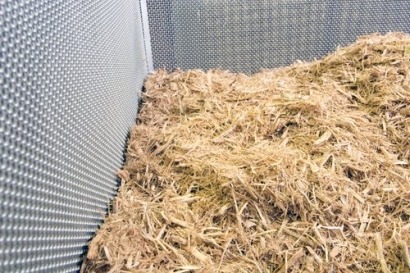
The Department of Energy and Climate Change (DECC) has published the government’s draft Electricity Market Reform (EMR) Delivery Plan with the aim of providing greater certainty to investors. The document has been released for consultation and provides detail on the support mechanism (long-term Contracts for Difference) and draft strike prices for renewables investors. DECC claim that the measures will help to incentivise up to £110 billion of investment in new electricity infrastructure by 2020.
“No other sector is equal in scale to the British power market, in terms of the opportunity that it offers to investors, and the scale of the infrastructure challenge” said UK Energy Secretary Ed Davey. “The Delivery Plan will provide investors with further certainty of government’s intent, so that they can get on and make crucial investment decisions that are supporting green jobs and growth. The strike prices we have set will make the UK market one of the most attractive for developers and investors in renewable energy. The new support mechanism we are introducing for renewables will make it cheaper to deliver low-carbon generation by around £5 billion up to 2030. This will put the UK one step ahead in the global race to develop clean technologies, and will support up to 250,000 jobs across the energy sector.”
Mr Davey added that the measures will be good for green jobs and growth as well as protecting the environment. He said that the new strike prices will enable renewables to contribute more than 30 percent of the UK’s power mix by 2020 putting the country on track to seeing significant decarbonisation of the power sector by 2030 and meeting the UK’s wider climate targets.
The draft EMR Delivery Plan also provides further detail on Contracts for Difference (CfD), the methodology behind the level of strike prices for renewable energy including onshore and offshore wind, tidal, wave, biomass conversion and large solar projects, the methodology that the government will use in running a Capacity Market and numerous other details including a scenario for decarbonisation up to 2030. However, DECC has emphasised that these are scenarios not targets and that the exact generation mix will be influenced by how individual technologies develop in the coming decade.
DECC further stated that although the government is committed to decarbonisation it will do so in a way that maximises value-for-money for consumers by moving to a competitive price discovery process for all low-carbon technologies as soon as is practicable.
The Renewable Energy Association (REA), however, is not entirely happy with the draft delivery plan given the lack of a strike price for new build biomass which, it says, means that support for this important technology has effectively come to an end. The REA has therefore asked the government to reconsider on this particular point.
“The UK desperately needs new power generation capacity and has a legally-binding renewables target to meet” said the REA’s chief executive, Gaynor Hartnell. “Whilst it was wrong to cap the amount of new build biomass under the existing policy, until today project developers had the alternative option of a contract under the new policy. Today that option has been closed off. This is a U-turn. It is misguided and it will halt the kind of bioenergy industry that environmental NGOs had previously wanted to see, i.e. “one based on domestic forests, woody energy crops, agricultural residues and waste.”
Ms Hartnell added that it should not have to come to a choice between converting coal fired power stations to biomass or building new projects since the two operate at different scales and both can play an important role and that this decision in reality sends a terrible message to investors.
Further information:

